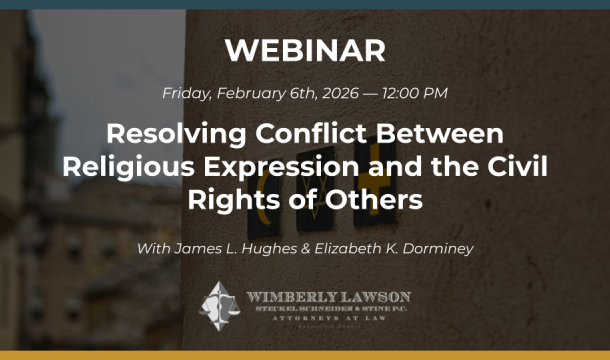Supreme Court Ruling Limits Transgender Rights
There have been several recent developments concerning transgender rights. Most interpret the Supreme Court’s 2020 ruling in Bostock v. Clayton County, as including protection for sexual orientation and sexual identity under the prohibitions of “sex discrimination” under the nation’s employment laws. However, the Bostock ruling expressly stated that it did not resolve all issues such as those associated with locker rooms and bathrooms.
On May 15, 2025, the U.S. District Court of the Northern District of Texas struck down portions of the EEOC’s 2024 Guidance pertaining to sexual orientation and gender identity under Title VII, which prevented the use of the vacated portions of the 2024 Guidance across the country. State of Texas v. EEOC, U.S. District Court for the Northern District of Texas, Amarillo Division.
More recently, on June 18, 2025, the Supreme Court ruled that a public employee health plan’s blanket coverage exclusion for gender dysphoria treatments did not violate the 14th Amendment’s equal protection clause. U.S. v. Skrmetti, No. 23-477. Justice Roberts writing for the 6-3 majority stated that there were sincere concerns about these issues, but the Constitution does not resolve these disagreements and the task is best left to the legislature or Congress. The High Court had previously issued an emergency order allowing the administration to implement its ban on transgender individuals serving in the military. The result is that the future of gender treatments will be dependent on each state legislature, much like the abortion issue. The rationale of the opinion was that the Tennessee law, while it referenced sex, did not actually discriminate on the basis of sex. Instead, it focused on two distinctions: The age of the patient and the medical use of treatment such as puberty blockers.
The EEOC under the current administration recently halted work on transgender worker discrimination charges. However, on July 1, 2025, the agency’s Director of the Office of Field Programs announced that the EEOC was “in the clear to continue processing” charges that “falls squarely under” the U.S. Supreme Court’s Bostock ruling. The EEOC announcement indicated that the agency would process transgender charges applicable to employment issues such as hiring, discharge or promotion.
This article is part of our August 2025 Newsletter.
View the newsletter online
Download the newsletter as a PDF
Related Content
Get Email Updates

Effect of Administration’s Abandonment of Disparate Impact in the Area of Discrimination Continues to Be Felt

Issues Arise for Employers Concerning the Overtime Tax Break

NLRB To Move Quickly as Quorum Is Restored

EEOC Issues New Guidance on National Origin Discrimination

Resolving Conflict Between Religious Expression and the Civil Rights of Others


